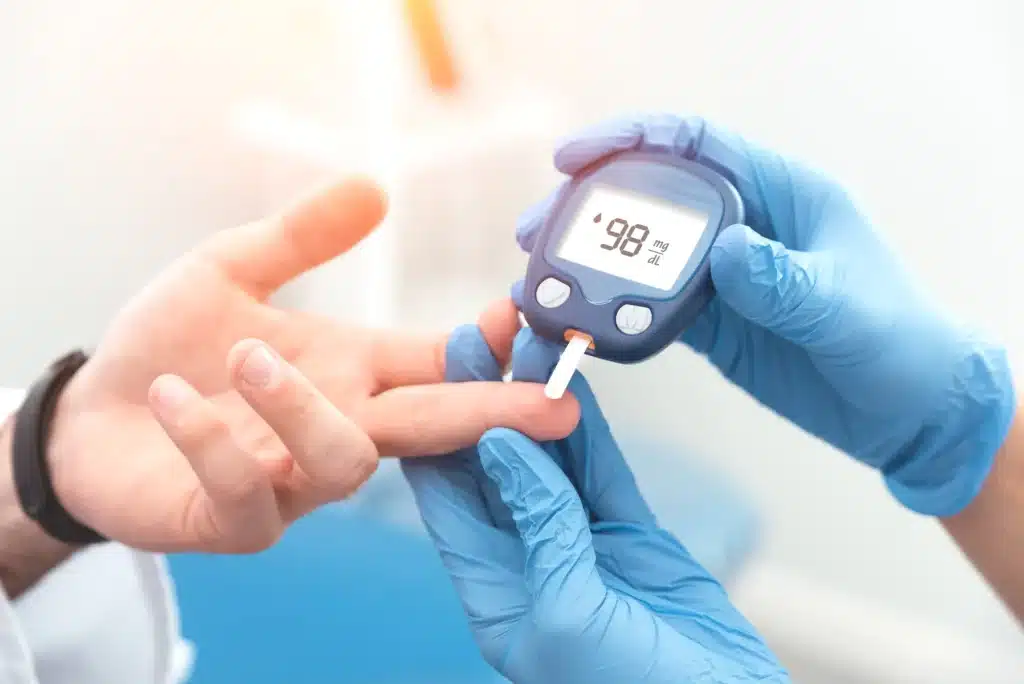Are there different medications for different types of diabetes?
Diabetes, a prevalent condition affecting millions worldwide, presents in two distinct forms. Treatment for both types involves various medications, which may leave you wondering about the most appropriate option or the reasoning behind your prescribed treatment. This comprehensive guide provides an extensive overview of commonly prescribed diabetes medications. We’ll also explore the complexities of diabetes, highlighting key differences between type 1 and type 2 diabetes, while examining potential causes of the condition.

What is diabetes?
Diabetes is characterized by abnormally high blood sugar levels, occurring when glucose concentrations become excessively elevated. The condition manifests in two primary forms: type 1 and type 2 diabetes, which we’ll examine in detail later. Blood glucose, derived from food, serves as the body’s primary energy source. Insulin, a pancreatic hormone, regulates blood sugar by facilitating glucose transport into cells for energy production. Diabetes develops when the body produces insufficient insulin or ceases production entirely.
What medications are available for diabetes?
Diabetes treatment has evolved significantly, offering improved accessibility and effectiveness. A wide range of diabetes medications are available by prescription.
Insulin injections remain the cornerstone treatment, primarily for type 1 diabetes, though some type 2 patients may require them. A revolutionary advancement is the insulin pump – a compact device combining a needle and electronic component that delivers insulin as needed. These pumps continuously monitor blood sugar and administer insulin automatically, eliminating manual monitoring and injections. While promising, these treatments remain limited in availability. Eligibility is restricted, and the devices carry substantial acquisition and maintenance costs.
How does diabetes develop?
Diabetes manifests in two distinct forms with different origins, but shares a common underlying mechanism: inadequate insulin production. Insulin facilitates glucose transport from food into cells for energy conversion. Diabetes can lead to serious health complications including:
- Cardiovascular disease
- Renal disease
- Vision impairment
- Neuropathy
- Foot complications
- Cerebrovascular events
- Oral health issues
These conditions range from severe to potentially fatal, making it crucial to stay current with diabetes treatments regardless of type.
What is pre-diabetes?
Pre-diabetes represents a critical window for preventing type 2 diabetes. It’s characterized by elevated blood sugar levels that don’t yet meet diagnostic thresholds for diabetes. Untreated pre-diabetes can progress to type 2 diabetes, cardiovascular disease, and stroke. However, this stage offers an opportunity for intervention. Diagnosis allows for lifestyle modifications that can reverse the condition. Regular exercise and dietary improvements can effectively prevent type 2 diabetes development.
What is Type 1 diabetes?
Type 1 diabetes is a congenital condition that may manifest at any life stage, though typically appears during childhood or adolescence. It has a genetic component, potentially inherited through family lines. However, carrying type 1 diabetes genes doesn’t guarantee disease development. Some genetic carriers never develop the condition, though certain triggers like illness or environmental factors may activate it in susceptible individuals.
What is Type 2 diabetes?
Type 2 diabetes accounts for approximately 90% of diabetes cases, far surpassing type 1 in prevalence. Unlike type 1, it typically develops later in life and is strongly associated with modifiable risk factors including physical inactivity, poor diet, and family history. Excess weight significantly increases risk, with many cases preceded by a pre-diabetic phase. This transitional period allows for lifestyle interventions that can halt progression to full-blown type 2 diabetes.
Managing life with diabetes
A diabetes diagnosis – whether type 1 or 2 – may understandably raise concerns about daily life. Fortunately, treatment advances have dramatically improved quality of life for diabetics. Where management was once challenging, modern technologies like insulin pumps have simplified disease control. Consider these practical management strategies:
- Dietary modifications: Eliminate sugary foods/beverages, reduce carbohydrates, and maintain balanced nutrition
- Regular physical activity: Consult your physician to develop an appropriate exercise regimen
- Medication management: Maintain proper medication stores and storage conditions
- Alcohol precautions: Avoid drinking on an empty stomach and monitor blood sugar before bedtime after consumption
Implementing these strategies can effectively manage diabetes and enhance overall wellbeing.
Purchasing diabetes medication online
Most prescribed diabetes medications are available online through MedsBird. To find your required treatment, browse our diabetes medication selection. You can purchase using an existing prescription or complete a convenient online consultation with an independent prescriber. Following approval, you’ll receive a prescription enabling seamless medication acquisition through our platform.
Sources:
https://www.sciencefocus.com/tag/diabetes/
https://www.nhs.uk/conditions/diabetes/







